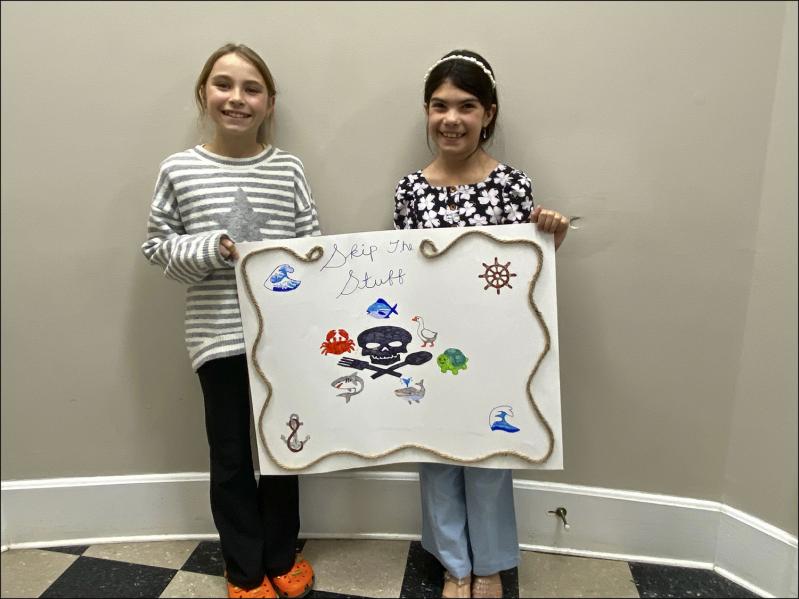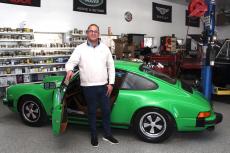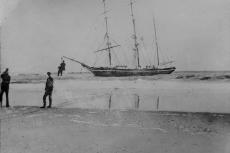Skip the Stuff laws, such as one adopted by East Hampton Village last year, seek to change the expectations of restaurant takeout and delivery food customers. Instead of expecting to receive extra items like utensils and condiments by default, customers expect to not receive those items unless they specifically request them.
The Nov. 12 public hearing followed an April presentation by members of the Surfrider Foundation and Mary Ann Eddy of the village’s environmental advisory committee. It included chilling statistics such as 17 billion pounds of plastic in the oceans and food-service packaging comprising 70 percent of litter recorded from 179 Surfrider Foundation-led beach cleanups.
The week of the April presentation, The New York Times reported that scientists had found that human brain samples from 2024 had nearly 50 percent more microplastics than samples from eight years earlier, with samples showing a median concentration of about five water bottle caps’ worth.
“Last spring, I stood here with Mary Ann and gave you a lot of sobering facts about the nearly five-million-ton problem that is caused by 500 billion single-use plastic utensils that are used every year,” Christine Capelli, a Surfrider volunteer, swimmer, and Sag Harbor resident told the board last week. “Thank you for being open to listening to us last spring, but more so for recognizing that it’s essential for Sag Harbor to limit the amount of plastic pollution that’s going into our waters and continuing to litter our beaches.”
Ms. Capelli also thanked restaurants that she said have been open to volunteers’ outreach to discuss alternatives to distributing single-use plastics without request. “It’s an alternative that can save money,” she said, “and it takes the responsibility off the customers from having to either store it or throw it away. . . . Rarely does a complex problem have such a simple solution.”
Brody Eggert, Surfrider’s Eastern Long Island chapter manager and a former East Hampton Town lifeguard, told the board that an East Hampton restaurateur said that he saves around $2,500 per year by providing plastic utensils only when asked. “While I was tasked with protecting bathers from rip currents, I often spent my time cleaning plastic waste from our pristine beaches,” he said. “I wanted to be a part of the Surfrider Foundation, like my time as a lifeguard, to protect our waters and those that enjoy them.”
Vinny McGann told the board about documentary films including “Smog of the Sea,” “A Plastic Ocean,” and “Plastic People: The Hidden Crisis of Microplastics,” the latter “difficult at best, and harsh, if you really want to be accurate . . . but it’s the scare tactic that some people may need to be enlightened to the situation. It’s not good. You need to take action.”
Jenna Schwerzmann, who is Surfrider’s plastic pollution initiative coordinator, told the board that “policy is the most effective way to make a change,” likening the Skip the Stuff campaign to Suffolk County’s plastic bag ban, which went into effect in 2018 and imposes a 5-cent fee on single-use carryout bags. At the time, “few people were bringing their own bags to the stores,” she said. “But as soon as the law took effect, habits changed, complaints stopped, people adapted, and now bringing your bag is the new normal. This is what happens when you stop making disposable plastic the free default option whether consumers ask for it or not.”
“We are in a waste crisis,” Ms. Schwerzmann said, “and we need to get away from disposables, especially plastics.” A waterfront community like Sag Harbor “could really set the tone for residents and tourists alike and lead by example to reduce plastic pollution. With support from municipalities like yours, Skip the Stuff could take after the bag and even spread to the state level.”
Perhaps the most persuasive testimony came from the youngest speakers. “The ocean connects us all to each other, and most of the world’s most wonderful creatures live there,” Izabella Crawford and Lucia DiBartolo, who brought a handmade sign encouraging all to “skip the stuff,” told the board. “Plastic is poison to the sea creatures, so we should love them enough to protect them.”
“I appreciate your input very much,” Mayor Thomas Gardella told the girls. “I’m encouraged, to have our future stewards of the harbor come up and have an interest in this. Thank you very much, ladies.”
The hearing was closed, and the code amendment was quickly adopted.




